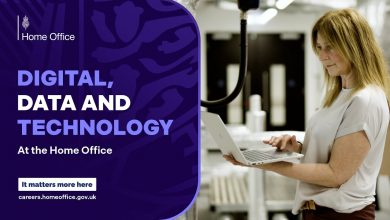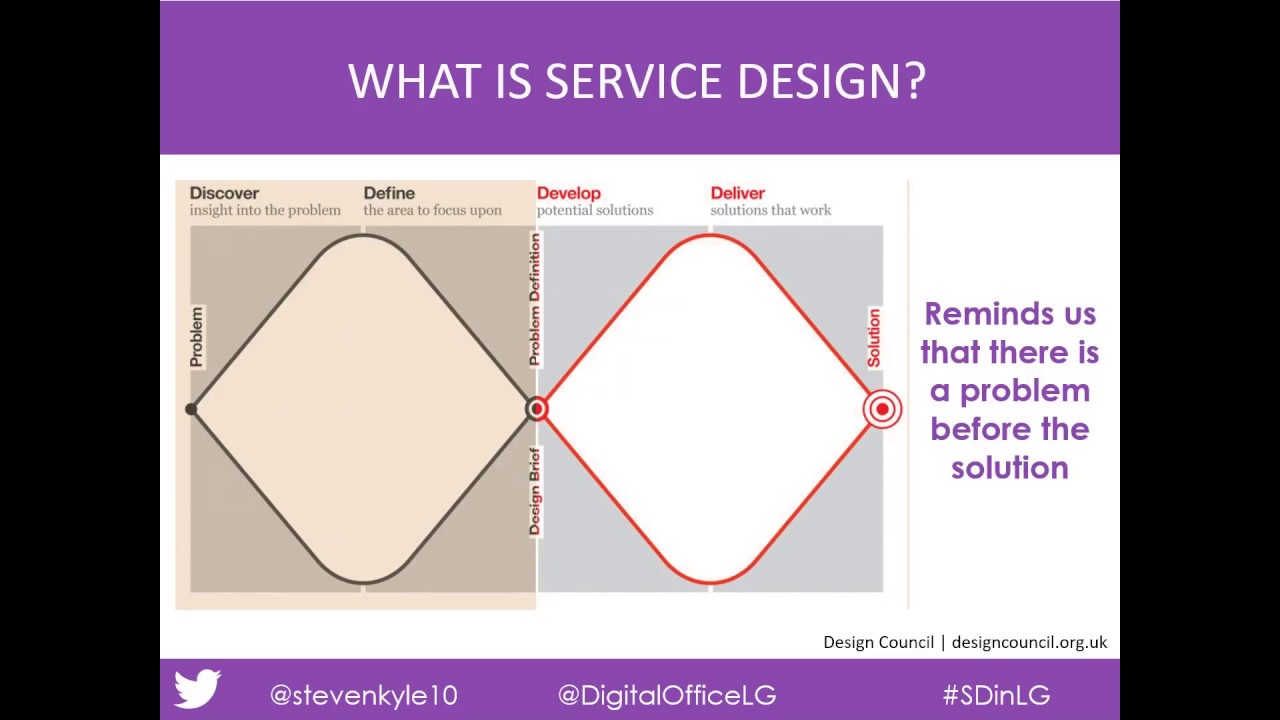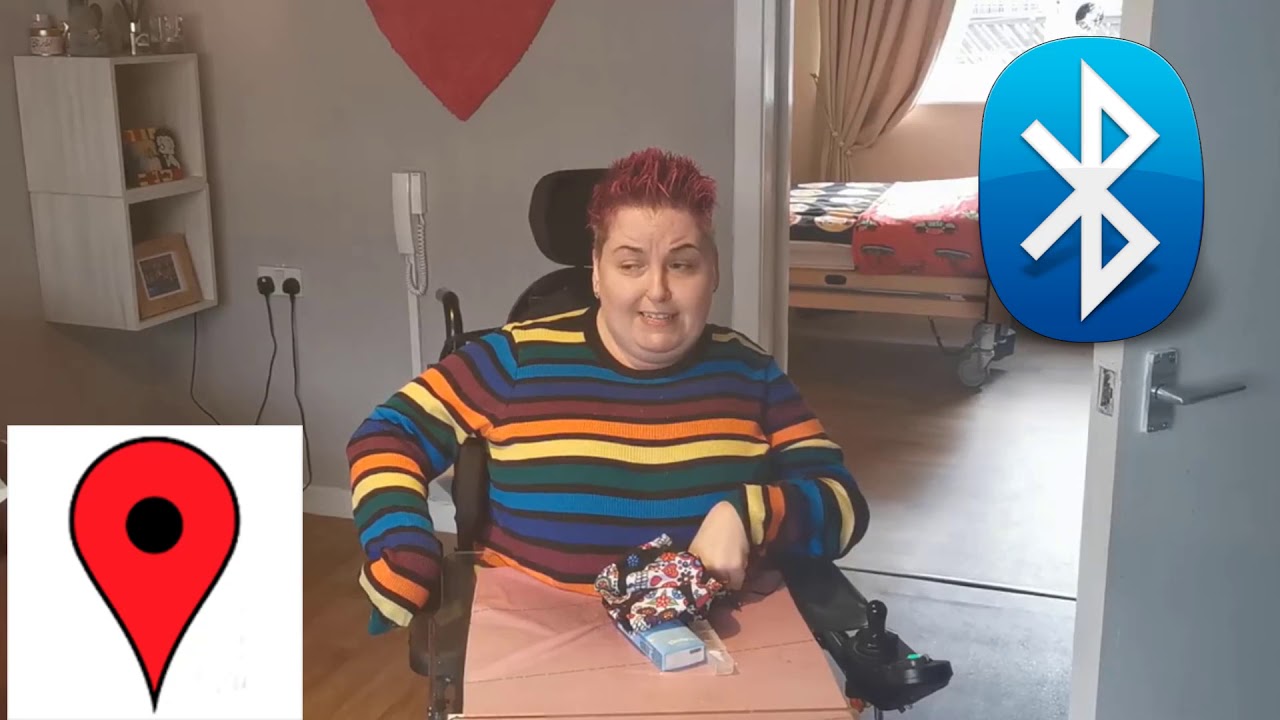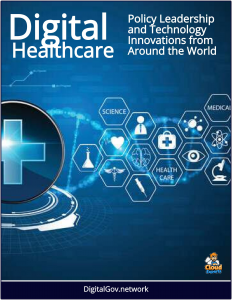 Digital innovations like ‘Virtual Wards’ and app-based self-treatment are transforming healthcare by addressing critical treatment capacity challenges, such as workforce shortages, limited hospital beds, access barriers, rising demand for care, and cost pressures.
Digital innovations like ‘Virtual Wards’ and app-based self-treatment are transforming healthcare by addressing critical treatment capacity challenges, such as workforce shortages, limited hospital beds, access barriers, rising demand for care, and cost pressures.
These technologies enable healthcare systems to deliver scalable, efficient, and patient-centered care, reducing strain on physical infrastructure and clinical staff while improving access and outcomes for patients.
By shifting care from traditional settings to home-based and self-managed models, these solutions help healthcare systems manage growing patient volumes without requiring proportional increases in resources.
As a central ambition of the UK’s plans is to build a ‘Neighbourhood Health Service‘, where services are localized closer to people at home, these types of innovations can clearly be seen as an approach central to achieving this.
Virtual Wards
Virtual Wards are an innovative digital healthcare model designed to deliver hospital-level care to patients in their own homes, reducing the need for physical hospital admissions. By combining remote monitoring technologies, telehealth, and coordinated clinical support, Virtual Wards allow healthcare systems to manage acute and chronic conditions outside traditional hospital settings.
Patients use devices like pulse oximeters or wearable sensors to track vital signs, with clinicians monitoring data in real time via dashboards and intervening only when necessary. For example, NHS England’s Virtual Ward programs have successfully managed conditions like COPD, heart failure, and post-surgical recovery, enabling patients to recover in familiar environments.
This approach reduces hospital admissions by up to 30% for certain conditions, as timely interventions like medication adjustments prevent escalations. By freeing up hospital beds—NHS England aimed for 7,000 Virtual Ward “beds” by 2024—and allowing clinical teams to oversee dozens of patients simultaneously, Virtual Wards significantly enhance capacity.
They also improve patient satisfaction and quality of life, as seen in frailty programs with lower readmission rates, while reducing per-patient costs by 20-30% compared to inpatient care. Virtual Wards are used for a range of conditions, including chronic diseases like COPD or heart failure, post-surgical recovery, and acute illnesses such as infections requiring close monitoring.
Vendors include specialists like Doccla. They are enabling NHS Greater Glasgow to provide the equivalent of 1,000 hospital beds. Other Scottish programs include the Shared ARC platform, part of the Digital Telehealth initiative.
App-Based Self Care
Similarly, app-based self-treatment empowers patients to manage their health independently, alleviating pressure on outpatient clinics and hospitals. Mobile health apps and digital therapeutics, such as mySugr for diabetes or Hinge Health for physical therapy, provide tools for self-monitoring, personalized coaching, and lifestyle interventions.
These reduce the need for frequent doctor visits, allowing clinicians to focus on complex cases. In mental health, apps like Woebot deliver evidence-based cognitive behavioral therapy for anxiety or depression, addressing the global treatment gap where therapist shortages limit access.
By integrating with telehealth platforms, apps enable asynchronous communication, with solutions like Hinge Health reducing in-person physiotherapy needs by up to 60%. Additionally, apps promote preventive care, as seen in telemonitored cardiac rehab programs that improve physical capacity and adherence, reducing emergency visits and hospitalizations.
App Store
The UK government’s plan to create a Health Store App Marketplace is a significant step toward advancing the adoption of app-based self-home care.
This initiative, outlined in a statement to Parliament, aims to provide patients with access to a range of new digital products designed to manage their healthcare, focusing on clinical areas such as mental health, cardiovascular health, and musculoskeletal conditions. The Health Store App Marketplace will increase the accessibility and visibility of clinically validated digital health tools, making it easier for patients to discover and use apps for self-home care.
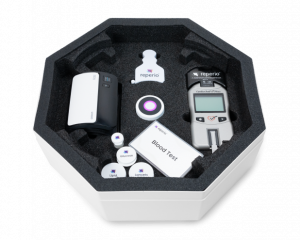 This initiative creates a favorable environment for startups like Reperio Health, which offers a comprehensive at-home biometric screening kit with instant results, to deliver innovative solutions to healthcare users.
This initiative creates a favorable environment for startups like Reperio Health, which offers a comprehensive at-home biometric screening kit with instant results, to deliver innovative solutions to healthcare users.
Reperio provides a patented at-home health screening kit paired with a mobile app that delivers instant results for key biometric markers, including blood pressure, heart rate, BMI, relative fat mass, total cholesterol, HDL, LDL, triglycerides, and glucose.
The kit uses FDA-cleared, Bluetooth-connected devices and a user-friendly app with voiceovers, animations, and videos to guide users through a 30-minute screening process in the comfort of their homes. Results are displayed in an easy-to-understand format, and users can opt for an AI-assisted virtual consultation with a clinician to interpret findings and receive personalized recommendations.
Reperio’s model eliminates the need for lab visits or mailed samples, addressing logistical barriers like long wait times, scheduling difficulties, and transportation challenges. They exemplify an ideal model for startups in this space by combining user-friendly technology, immediate health insights, and seamless integration with clinical care, aligning perfectly with the goals of the Health Store initiative.
